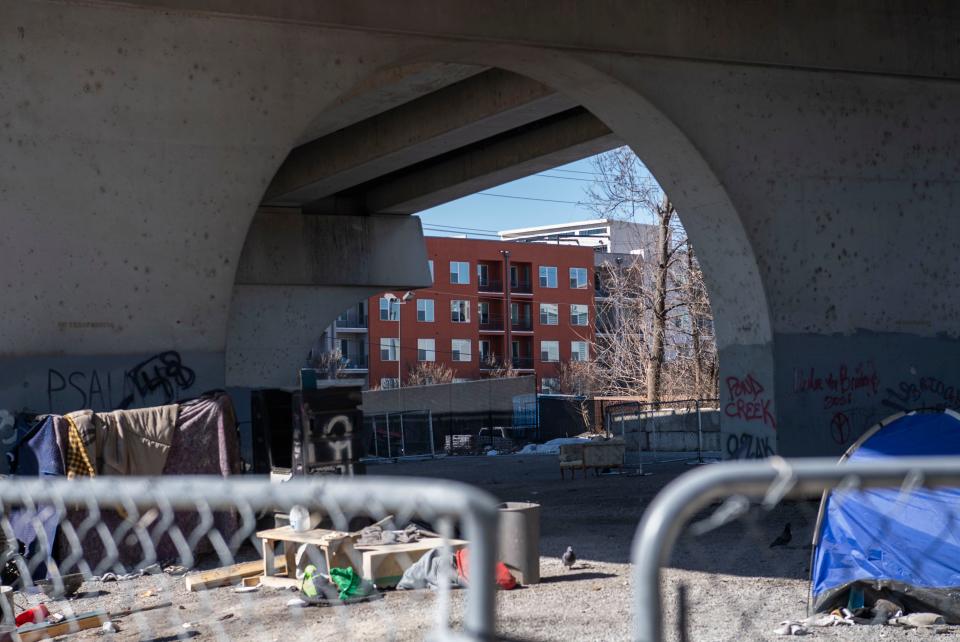How a $50 million investment will help solve homelessness in Nashville | Opinion
Everyone deserves and should have full access to the human right of living in a stable and safe environment. To achieve this, our leaders must have both the vision and funding necessary for such an ambitious task.
In April, Mayor John Cooper outlined a three-prong plan to address homelessness in Nashville — Invest, Increase, and Innovate — and undergirded the plan with a historic investment of $50 million. The Metro Council approved the plan on Tuesday.
The $50 million commitment from the city’s pot of federally allocated American Rescue Plan money will mean an investment in a range of permanent solutions that will help Nashville house the homeless and prevent individuals and families from entering homelessness. It also positions the Metro Homeless Impact Division to quickly get unhoused people into stable housing quickly, using the American Rescue Plan funds as a catalyst.
Hear more Tennessee Voices: Get the weekly opinion newsletter for insightful and thought provoking columns.
Here is the problem
Data shows that, when compared with other similar cities, Nashville has had a higher proportion of chronically homeless people, who stayed on the streets longer and were unlikely to solve their own homelessness.

To effectively move people from the streets to housing, Mayor John Cooper committed to adopt a national best practice known as “Housing First,” which moves swiftly to provide individuals and families experiencing homelessness from streets and shelters into permanent housing with the services necessary to assure that they maintain housing.
Houston, Texas has seen significant success using the “Housing First” model, seeing a 63% drop in homelessness.
Sign up for Latino Tennessee Voices newsletter:Read compelling stories for and with the Latino community in Tennessee.
Here is the solution
One thing is certain: more hands and help are needed to address the needs of those who live unhoused.
Historic shortages and employee burnout have resulted in the consequence of staff shortages.
The plan dedicates $25 million of the investment to this area so that there will be sufficient outreach teams, to engage anyone living in camps and doorways, screen them, and prioritize housing for those who are most ill.
Sign up for Black Tennessee Voices newsletter:Read compelling columns by Black writers from across Tennessee.
Assessing the housing needs
An additional $25 million will be invested in expanding set asides for Permanent Supportive Housing (PSH) and deeply affordable housing.
Imagine being able to finally provide enough housing to resolve homelessness. Well, this plan makes it possible. Because of the tight rental-housing market — with its occupancy rate of more than 95% and average rent that now has climbed to $1,530 — we must create a new base of accessible affordable housing.
We can do that by; providing gap financing to developers building mixed income developments, purchase additional deeply affordable units and set asides for PSH. The $25 million Affordable Housing Finance Program is designed to bring units on quickly, six to 18 months, because it targets developments that are already underway.
Most importantly, we need the Housing First case management that provides the ongoing support that an individual needs to maintain their housing. Studies show about 90% of those housed from the street into PSH with “Housing First” supportive services remained housed.
Landlord incentives are another tool
Beyond new construction, Nashville also must improve access to existing housing through incentives and safeguards for landlords who agree to rent to low-income renters who may have bad credit, poor rental histories, or a past criminal record.
To date, 100 landlords managing more than 2,000 units have agreed to relax their rental criteria. It’s quite simple – we can’t house people unless we have housing to offer.
The good news is that we now know how to use and combine housing strategies in a way that can make homelessness rare and brief.
With the approval of the mayor’s $50 million investment, we can move forward together to ensure that longtime and widespread homelessness is a thing of the past in our city.
April Calvin is interim director of Metro Homeless Impact Division and Stacy Horn-Koch is principal of SHK Consulting, LLC.
This article originally appeared on Nashville Tennessean: How a $50 million investment will help solve homelessness in Nashville

